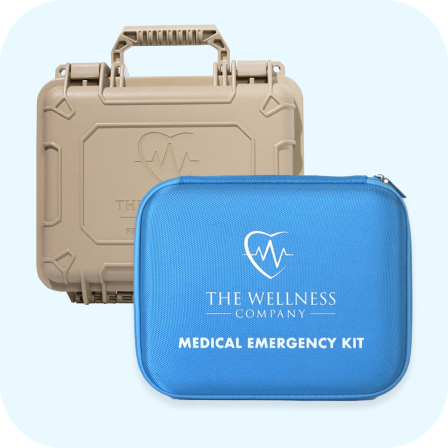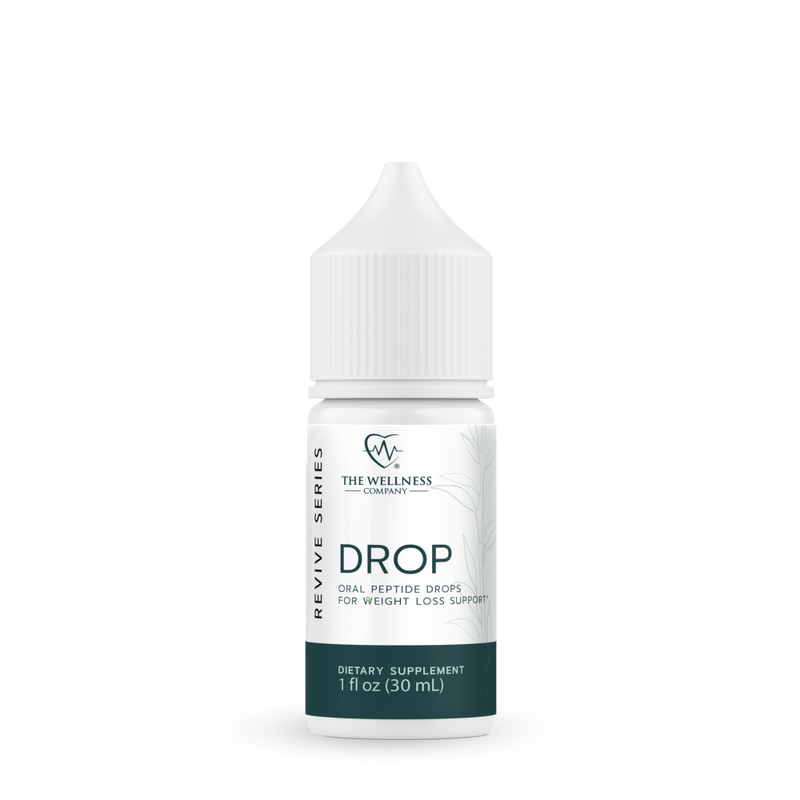This Deadly Combination Can Be Easily Prevented by Doing This One Thing

Dehydration leading to electrolyte imbalances can have deadly consequences
According to self-reported statistics, approximately 75% of the U.S. population is chronically dehydrated, leading to impaired work performance, delayed reaction time, reduced concentration, and more. In fact, in one study, dehydration delayed reaction time similar to people with a 0.08% blood alcohol level, which makes this comparable to driving drunk. (1)
Populations most at risk for dehydration
Athletes and outdoor workers: Those who engage in intense physical activity or work in hot environments are prone to excessive fluid loss. Even in cooler weather, we may not take in enough fluid. You may not feel thirsty in cooler weather.
Infants and young children: They are more susceptible to fluid loss through diarrhea and vomiting. And their smaller body size. Special caution in this age group needs to be exercised.
People with chronic illnesses: Conditions like diabetes or kidney disease increase the risk of dehydration. (Water loss when diabetic through excessive urination)
Older adults: As we age, our body's ability to conserve water decreases, and thirst sensation becomes less acute/ Dementia and other sensory losses can inhibit the ability to know when we are thirsty. (2)
Symptoms of dehydration

Infants and Young Children:
- Dry mouth and tongue
- No tears when crying
- No wet diapers for three hours
- Sunken eyes and cheeks
- Sunken soft spot on top of the skull
- Listlessness or irritability
Adults:
- Extreme thirst
- Dry mouth and lips
- Less frequent urination
- Dark-colored urine
- Fatigue
- Dizziness, confusion
- Rapid heart rate.
- It's important to note that thirst is not always a reliable indicator of dehydration. (2)
The main electrolytes lost when you are dehydrated are:
- Sodium- vital for controlling water levels in the body and regulating blood pressure.
- Potassium- is essential for controlling nerve impulses and muscle contractions. This is especially important for heart muscle contraction
- Magnesium- maintains heart rate and blood sugar levels.
- Calcium- plays a critical role in blood clotting and bone health.
- Chloride- manages pH levels in the body.
- Phosphate- manages pH levels and controls the amount of fluid in the body (3)
Electrolyte balances can be potentially life-threatening
(Note- these life-threatening symptoms can almost always be reversed if you address the underlying cause)
Electrolyte imbalance symptoms include:
- Cardiac arrhythmias: Electrolyte imbalances, especially involving potassium, sodium, and calcium, can severely disrupt normal heart rhythm. This can lead to life-threatening arrhythmias, including ventricular fibrillation and cardiac arrest.
- Seizures: Severe electrolyte disturbances, particularly involving sodium and calcium, can cause seizures by altering the electrical activity in the brain.
- Coma: Extreme electrolyte imbalances can lead to altered mental status, confusion, and even coma.
- Brain swelling: Rapid changes in sodium levels, especially if corrected too quickly, can cause cerebral edema or brain herniation, which can be fatal
- Muscle weakness, cramps, and paralysis: Severe imbalances in potassium, calcium, chloride, or magnesium: Can cause extreme muscle weakness, potentially leading to respiratory failure if the muscles involved in breathing are affected.
- Shock: Significant electrolyte losses, often accompanied by fluid loss, can lead to circulatory shock, a life-threatening condition where the body's organs don't receive adequate blood flow.
- Kidney Failure: Electrolyte imbalances both cause and result from kidney dysfunction. Severe cases can lead to acute kidney injury or worsen existing kidney disease.
- Acid-Base Disturbances: Examples- diabetic ketoacidosis, severe diarrhea, renal failure, diuretic use. (3,4)
Dehydration and electrolyte imbalance - a deadly combination
Causes of electrolyte imbalance
- Fluid loss: When the body loses water through sweating, urination, diarrhea, or vomiting, it also loses electrolytes dissolved in those fluids. This direct loss of electrolytes can disrupt the balance of electrolytes in the body.
- Concentration changes: As water levels decrease due to dehydration, the concentration of electrolytes in the remaining body fluids can become too high, leading to conditions like hypernatremia (high sodium levels).
- Kidney function: Dehydration affects kidney function, which is crucial for maintaining electrolyte balance. When dehydrated, the kidneys may not be able to effectively regulate electrolyte levels in the blood.
- Hormonal responses: Dehydration triggers hormonal responses that can affect electrolyte balance.
- Acid-base imbalances: Severe dehydration can lead to metabolic acidosis, which can further disrupt electrolyte balance, particularly affecting potassium levels. This can occur through excessive sweating, diarrhea, or vomiting.
- Cellular shifts: As the body becomes dehydrated, electrolytes may shift between intracellular and extracellular spaces to maintain balance which can lead to imbalances.
- Compensatory mechanisms: The body's attempts to compensate for fluid loss can sometimes exacerbate electrolyte imbalances. For instance, increased aldosterone secretion to retain sodium can lead to potassium loss.
- Some classes of medications- Some diuretic medications cause the body to lose potassium. Diuretics are designed to relieve the body of excess fluid. Consult your care provider and ask if you may need to add a potassium replacement if you are on a diuretic medication. Other medications include (not an exhaustive list) laxatives, ACE inhibitors, some antidepressants, lithium, corticosteroids (alter electrolyte balance) antihistamines such as Benadryl or Claritin. (4)
Water may not be enough if you are dehydrated
The good news is that dehydration can be reversed within a day or so.
While water may alleviate thirst, symptoms of electrolyte loss may persist. Electrolytes are the ignition our body needs to keep functioning. Drinking straight water may be enough however, if you are experiencing signs of dehydration, it is important to replace electrolytes.
Prevent Dehydration
- Aim for 6-8 cups of fluids daily, more in hot weather.
- Drink fluids regularly throughout the day, not just when you feel thirsty. Thirst is often a sign you're already mildly dehydrated. If you don’t like water, try adding a lemon slice to the water.
- Excessive sugar intake, such as in sugary sodas and juices can make dehydration symptoms worse, by increasing urine output.
- Monitor your urine color - it should be pale yellow like lemonade. Darker urine indicates you need to drink more fluids.
- Increase fluid intake during hot weather, when exercising, or if you're ill with fever, diarrhea, or vomiting
- Drink water or electrolyte replacement before, during, and after exercise. A good guideline is to drink a cup of fluid about 4 hours before exercising, and another half-cup every 10-15 minutes during exercise.
- Eat fruits and vegetables, which have high water content
- Limit intake of coffee, alcohol, and caffeinated drinks, which can act as diuretics.
- If taking medications that cause dehydration, be especially vigilant about fluid intake and monitoring for signs of dehydration. (5)
Severe cases may require medical intervention with intravenous fluids and electrolyte replacement. If in doubt, contact your care provider.
References
- Costello, M. (2018, September 26). Study shows driving dehydrated similar to having blood alcohol content of 0.08. Drive. https://www.drive.com.au/news/study-shows-driving-dehydrated-similar-to-having-blood-alcohol-content-of-0-08/
- National Center for Biotechnology Information (US). https://www.ncbi.nlm.nih.gov/books/NBK555956/
- Cleveland Clinic. (2023, June 5). Dehydration. https://my.clevelandclinic.org/health/diseases/9013-dehydration
- (2023, July 10). Fluid and electrolyte balance. U.S. National Library of Medicine. https://medlineplus.gov/fluidandelectrolytebalance.html
- Cleveland Clinic. (2022, August 13). Electrolyte imbalance: Types, symptoms, causes & treatment. https://my.clevelandclinic.org/health/symptoms/24019-electrolyte-imbalance
Written by Brooke Lounsbury






















